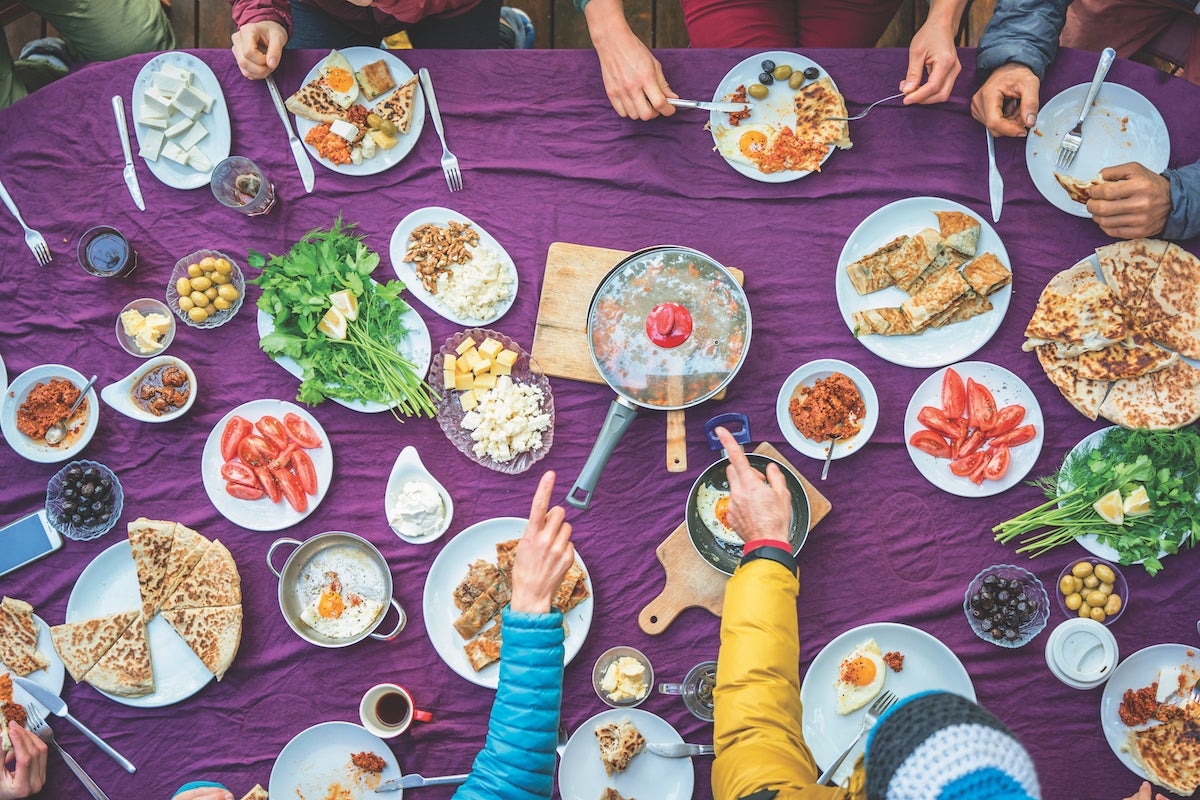Fuel: The Secret to a High Performance Diet is in Your Calendar

(Photo: JAN NOVAK)
This is a preview of Katie Lambert’s article from our summer issue, which explores in depth the nutritional benefits to climbers of a local, seasonal diet. To read the full article, and gain access to more performance advice and world-class storytelling from our entire network of sites, join Outside+ today.
With 90 percent of our serotonin receptors in the gut, we must consider what we eat and when. According to Traditional Chinese Medicine, the following foods are optimal for each season:
Spring
Focus on tender, leafy vegetables like Swiss chard, spinach, lettuce, and herbs like basil, fennel, rosemary, dill, and bay. These springtime foods are considered “expansive”—rendering a sense of energetic lightness.
Summer
Stick with lighter, cooling foods (these foods are usually water-based and introduce a cooling effect to the body) like strawberries, apples, pears, plums, summer squash, broccoli, cauliflower, and corn. For spices, use light herbs like peppermint and cilantro.
Autumn
Turn toward warming harvest foods, which help dispel the cold by bringing heat to the organs, blood, and cells. These foods include root vegetables and bulbs—for example, beets, turnips, onions, garlic, leeks, squash, and pumpkins. Also emphasize warming spices and seasonings including ginger, peppercorns, and mustard seeds.
Winter
Turn even more toward warming foods, especially foods that take longer to grow and raise—e.g., animal foods including fish, chicken, beef, and lamb; eggs; corn; and most of the root vegetables including carrots, potatoes, onions, and garlic.
Read the full article here